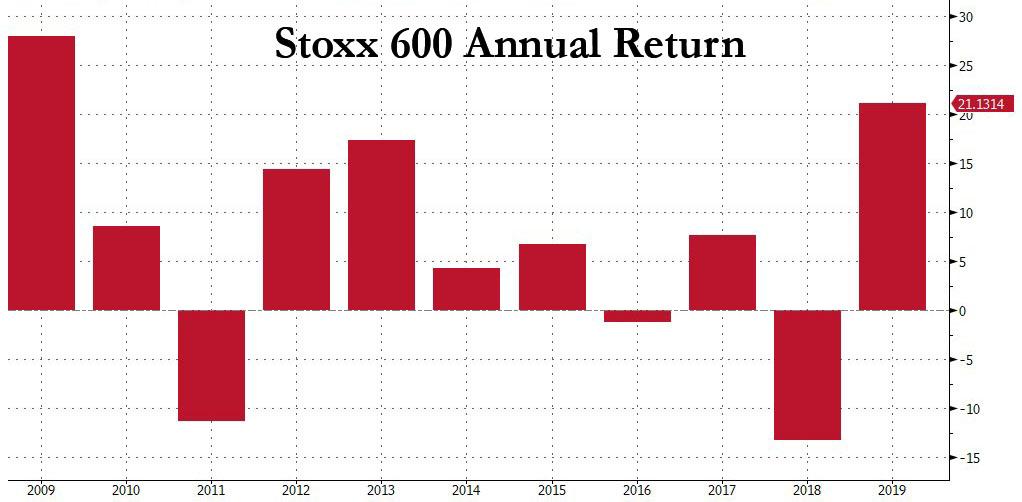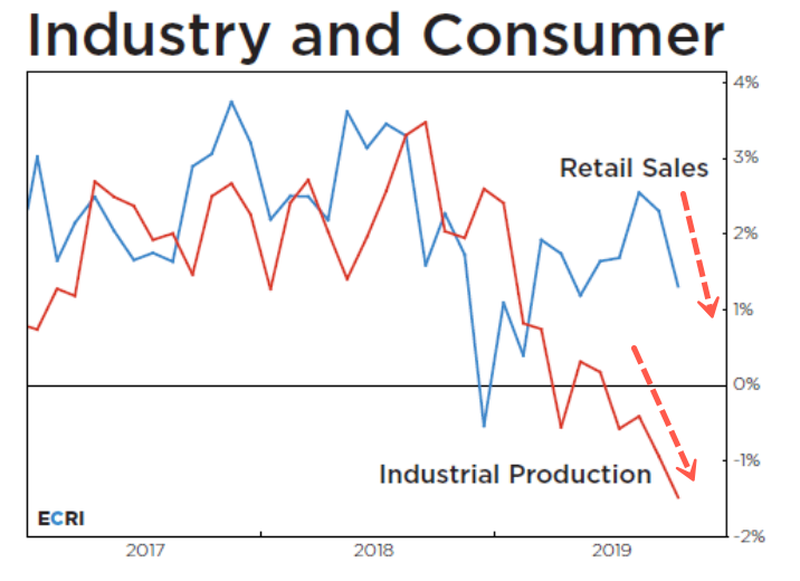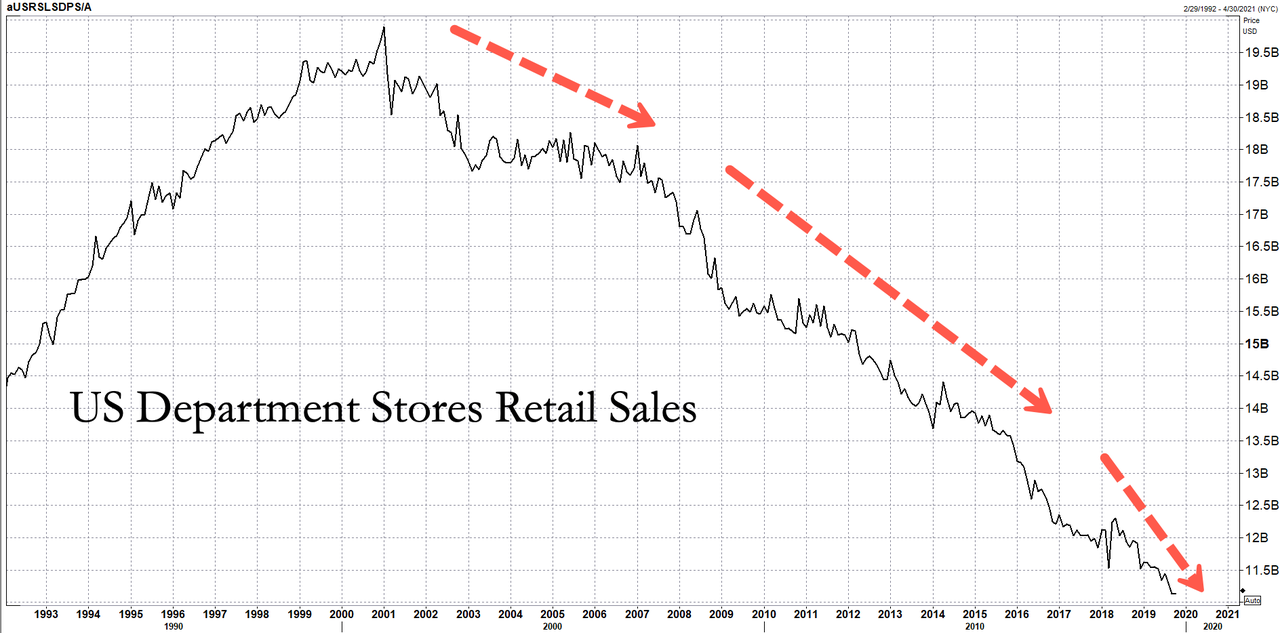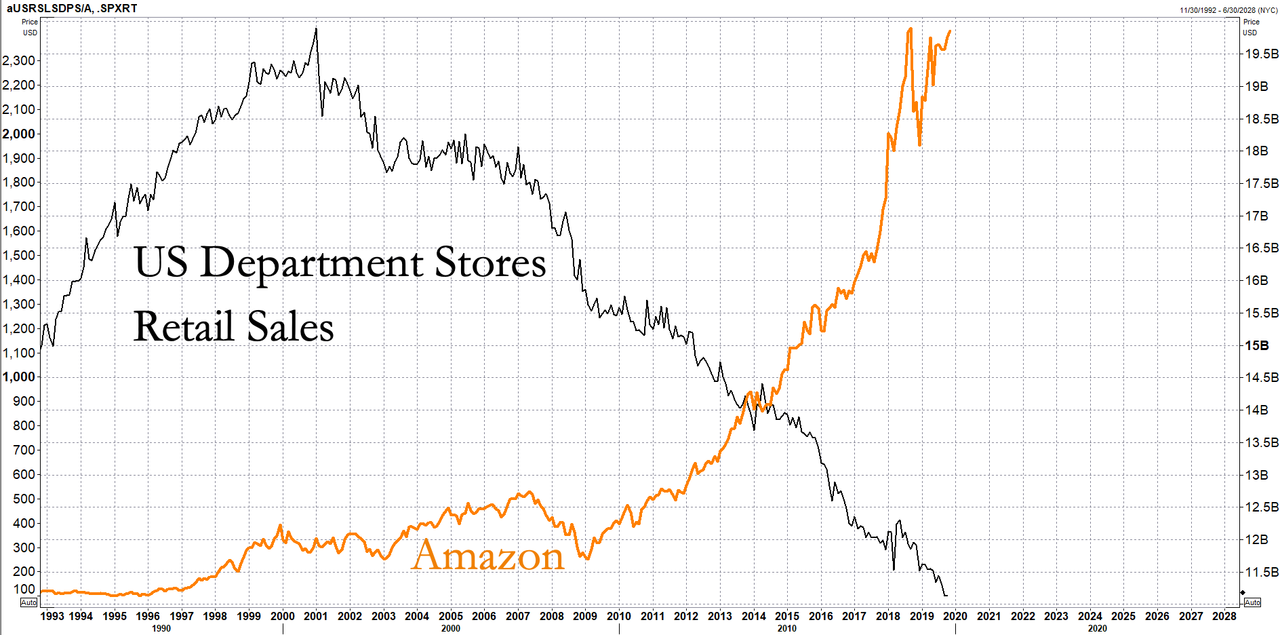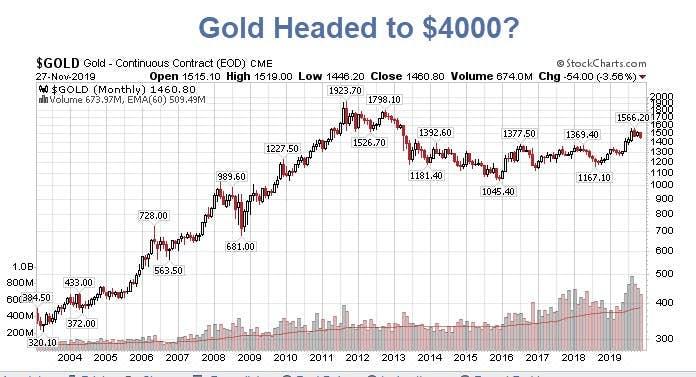European Equities On Track For Their Best Year Since 2009
Authored by Michael Msika, Bloomberg markets reporter and former portfolio manager and trader
Heading into December, European equities are shining with a 21% advance this year and every sector in green, even the banks. Four industry groups have risen more than 30%. What’s not to like? For those investors fully exposed, it might be tempting to book profits now. But the market may still have a few surprises in store.
European equities are on track for their best year since 2009, in the aftermath of the global financial crisis, and even national markets that had struggled in the past such as Italy and Greece have had stellar performances. With a 3.2% gain on the Stoxx 600, November is another good month to add to the very positive global picture in 2019. So far this year, the index had only two negative months — something of a rarity as it happened only twice in the past 20 years: in 2006 and 2013.
Yet despite the rally, 2019 has clearly been a “risk-off” year. Globally, year-to-date flows amount to $553 billion into cash positions, $353 billion into credit, $51 billion into government bonds, and $188 billion went out of equity funds according to Bank of America strategists, citing EPFR Global data. The recent upturn in equity flows is light compared to the outflows sustained since December last year.
Investors still seem plagued by the “fear of joining in,” according to Exane, even if some “fear of missing out” has emerged lately. Looking at volumes in the Stoxx 600, after a spike in October, they’re running about 20% lower than last month, suggesting that not everyone is willing to jump on board.
A lot of positive news seems to be priced in. Take the DAX this month. When Germany’s GDP surprised positively, saving the country from a recession, the index reaction was muted.
But December might provide some catalysts. The most visible one is in Britain, according to Oddo BHF strategist Sylvain Goyon. Current polls predict a landslide victory for the Conservative party and should that materialize, it might provide the trigger to overcome the risk aversion affecting U.K. indexes, Goyon says.
Still, let’s not forget the persistent unknowns. A U.K. hung parliament or new U.S.-China tariffs on Dec. 15 could bring some volatility. Barclays strategists say the recent rally was likely due to rising expectations of improving macro and reduced policy uncertainty. However, many sources of geopolitical tail- risks are still around.
“I wonder if one really likes to play the game of timing in these markets, because timing is posing a real risk,” says Thomas Lehr, a strategist at Flossbach von Storch Capital Markets. “Yes our cash position is a little bit bigger, given the strong rally, but only due to the fact that we have to look closer to find cheap stocks,” he adds.
Sitting December out could prove to be a mistake in light of the brightening economic situation, says Daniel Kerbach, chief investment officer at Munich-based private bank Merck Fink. “We like to keep a constructive position into the first quarter as the signs regarding central banks and trade discussions are rather positive,” he says. His comments chime with those of asset managers DWS and Fidelity in recent weeks. Both said equity markets have the potential of a mid- to high-single-digit gain, if the improving framework of geopolitics and macro economics doesn’t collapse.
“Investment strategies that put a focus on seasons or calendar months don’t offer much of an advantage,” says Andre Koppers, a fund manager at Oberbanscheidt & Cie. “History shows that a timed entry and exit before or after strong market movements has much more to do with luck than skill.”
Tyler Durden
Fri, 11/29/2019 – 09:40
via ZeroHedge News https://ift.tt/35JZAUB Tyler Durden
